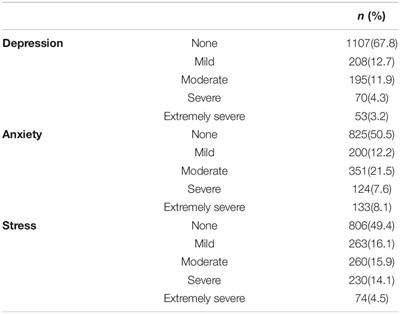Cite This
James Wallace, (2018, November 19). What’s the Difference Between a Psychologist and a Psychotherapist. Psychreg on General. https://www.psychreg.org/difference-between-psychologist-psychotherapist/
Reading Time:
4
minutes
At some point, we will have the classic confusion about the difference between a psychologist and a psychotherapist. However, it is relatively easy to identify the difference between a psychologist and a psychotherapist.
Psychotherapist vs psychologist
A psychotherapist is a person who, being a physician or psychologist, has also made a special training (from a psychotherapy school, then they practised supervised psychotherapy. The first known psychotherapist was Sigmund Freud, and the first psychotherapy school was psychoanalysis.
Today there are many psychotherapy schools, many divergent, all of emphasising the relationship with the client (the psychotherapist has clients, not patients) which only involves conversation – take speech therapy for example – not drugs or other forms of medical therapy.
Psychotherapy is a psychological intervention – a mechanism that aims to address health and illness. In other words, psychotherapy helps you resolve some emotional issues or modify certain aspects that make you vulnerable. So, if you have a problem with anxiety, depression, eating disorders or other similar issues, you need to ask for a psychotherapist’s support. Besides taking serious consultation from the psychotherapist, you can also get gifts to soothe anxiety for yourself.
Usually, the visits are made for a longer period of time on a weekly schedule by seeing the psychotherapist 1 or 2 times per week. You can meet them especially at psychological clinics but also in other contexts – hospitals, clinics, foundations, etc.
A psychologist is someone who has an academic qualification in psychology and deals, in general, with the study of the human mind. In fact, this domain is far too vast, so psychologists usually specialise in various branches: psychopathology (psychological anomaly), behavioural, social, educational, even organisational psychology – the list goes on, and it’s very long.
Psychologists also come in contact with patients, contributing to their assessment. in other words, if you have panic attacks it is advisable to look for a psychologist specialised in clinical psychology and psychotherapy.
In the same vein that if you want to be tested for the driving school exam, you will go to a psychologist specialised in the psychology of transport and services or if I want to change your job or you want to see what type of work is the best fit for you, then you should ask for help from a specialist in educational psychology, school, or vocational counselling.
Why is there confusion?
The truth is that often the domains intersect quite a bit. Officially and unofficially – officially, because a psychiatrist may be a psychotherapist or even a psychologist; in fact, in this case any combination is possible. Unofficially, because it’s often hard to pull a line and say: ‘Here is my domain, come here or consult another specialist’.
One major difference between psychiatrists and clinical psychologists is that psychiatrists have the strength of using and knowing the pharmacotherapy domain, which belongs exclusively to them because only a doctor can prescribe medications. The presence of the psychiatrist is always necessary for great psychological pathologies, such as schizophrenia, bipolar disorder, or major depression.
But if psychiatrists deal with mental disorders, are not they actually in clinical psychology? And if a psychotherapist treats mental suffering, is not that a kind of medicine?
Various studies say that psychological therapy depends upon the quality of the relationship between the therapist and the client.
Beyond that, only the very targeted therapies to a specific problem (such as cognitive-behavioural therapy) are suitable for scientific studies such as those in psychiatry which, like all branches of medicine, should be based on very solid evidence. So, if you try to see, for example, looking for types of freelance writing jobs which can help you with some extra advice, what kind of psychotherapy would suit you best, it might not at all be that easy.
And things get more and more complicated when all the other candidates for the healing role of the mind come into play. So, it’s not always easy to turn to the right person. Do not despair, however, because the main actor in the therapeutic act is neither the psychiatrist, nor the psychologist, nor the psychotherapist. The protagonist is you. And the most important part of the therapeutic act is the desire for the better.
Strive to feel the beauty around you with your heart, and constantly challenge yourself to create beauty instead of sinking into an inextricable emotion. When you have a desire and expectation for good things, you will notice everything around you. For example, you will find that the walls at home may need to be decorated, the flower pots on the balcony may have a more personalized appearance, etc. For example, you will find that the walls at home may need to be decorated, the flower pots on the balcony may have a more personalized appearance, etc. It will distract you and make you want to change and create beauty. When you have this kind of awareness in your mind, it means that you are starting to change. You might as well actively go to Customsticker.com to customize cute stickers to DIY the walls of the living room, the flower pots on the balcony, the cabinets, laptops, your mobile phone, and more, which will free your attention from personal specific emotions, these stickers will bring you unlimited DIY fun and make you feel very relaxed.
Role of a psychotherapist
-
Provides a solution to your problem
-
Helps you get better
-
Engage in dialogue
-
Processes communication
-
Implements behaviour change
Role of a psychologist
-
Helps you identify why you have a problem
-
Helps you identify what caused the problem
-
Helps you understand How you discovered this problem
-
Helps you identify what your motivations are
-
They cannot prescribe medications
Who to choose?
Ideally, the psychiatrist, psychologist and psychotherapist are working with your mind, perspective and your ideas. They can make you feel better about yourself and create that special state of mind which can bring you stability and emotional balance.
All you need to do is to look for that person, either we are talking about a psychological professional or a psychiatrist one, with which you are feeling comfortable, and you are not having any problems in communicating and telling all your problems. In the end, communication is the key for pretty much everything, but even more important when this is the main tool which can make a difference in your life. This is also one of the popular psychology dissertation topics.
So, it’s not your job to know in advance where to go. If you have a problem, ask any accredited professional of mental health. And he will guide you as far as possible. If the psychotherapist thinks he deserves to see a psychiatrist, he will tell you this, and vice versa.
James Wallace did his degree in psychology at the University of Hertfordshire. He is interested in mental health, wellness, and lifestyle.
Psychreg is mainly for information purposes only; materials on this website are not intended to be a substitute for professional advice. Don’t disregard professional advice or delay in seeking treatment because of what you have read on this website. Read our full disclaimer.
As Canadians, we pride ourselves on being progressive, so why is mental health still so stigmatized? It’s because of this stigma that many of us who have mental health issues are reluctant to get help.
We’ll drive to a dermatologist for a skin infection or walk to a gynecologist for uterine problems. But a mental health practitioner? Forget it. Plus, deciding between a psychologist or a psychiatrist can be so frustrating that we give up altogether. But knowing the difference can mean a quicker recovery. They’re more than just chatty doctors with comfy sofas and strong pills.
In the spirit of openness, let’s start demystifying some of the types of therapists in the evolving world of mental healthcare to help us figure out who can provide the care we need.
Who are psychotherapists?
Psychotherapists are mental health professionals who have specialized training in talk therapy. This is an all-encompassing term for those who help people deal with stress, anxiety, and other emotional problems through therapy. Psychotherapists include psychologists, psychoanalysts, and some psychiatrists. Each one of these has a different degree and focus, so we’ll discuss all three later.
Who are counsellors?
Counsellors provide therapy, counselling, or advice in a specific field of focus. They can specialize in different areas like relationships, careers, families, general mental health, or education counselling. Typically, people visit counsellors to seek specific advice or for help solving problems or making important decisions in life.
Who are psychoanalysts?
Psychoanalysts use a very specific method of treatment and therapy. They focus on alleviating symptoms, but also delve into the root causes of psychological problems. These are the professionals most often associated with the stereotypical couch scenario, as well as the Freudian model, which involves releasing emotions and free association. Psychoanalysts are unable to do psychological testing, cannot prescribe medications, and are usually best for treating conditions like childhood trauma.
Who are psychologists?
Psychologists are professionals who study psychology. Most conduct research and have a PHD in psychology. Clinical psychologists, in particular, hold a doctoral degree in psychology — a PsyD. They focus on testing (like IQ testing) and specialized types of therapy like Cognitive Behavioural Therapy (CBT) for addressing mental health issues. Despite their doctoral degree, they are not medical doctors, and so they’re unable to prescribe medications. If you feel that you have a mental disorder that requires treatment beyond talk therapy but not medication, see a clinical psychologist.
Who are psychiatrists and psychopharmacologists?
Psychiatrists are mental health professionals with a doctorate in medicine (an MD). While some do provide talk therapy, they usually focus on the medical side of mental illness by prescribing medications. Similarly, psychopharmacologists specialize in medications for psychological concerns and are considered psychiatric pharmacists.
Who are social workers?
Social Workers design programs and services that help address the psychological problems of individuals within our society. If they have a private practice, they can also design treatments or develop welfare plans for individuals. They are not involved with any psychological testing however and focus on the social environment as the cause of the individual’s problems. Social workers can have an individual practice or can work in community hospitals or outreach programs.
Being a little more educated about different types of mental health professionals can make seeking help a little less intimidating.




